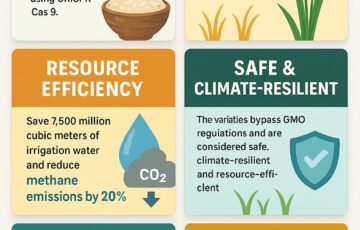India-UK Carbon Tax Clash Amid Trade Talks
India-UK Carbon Tax Clash Amid Trade Talks
Why in the News ?
India has warned of retaliation if the UK introduces its Carbon Border Adjustment Mechanism (CBAM) without granting India’s demand for a carve-out in the free trade agreement (FTA), citing adverse impact on Indian exports and MSMEs.
Concerns Over UK’s Proposed Carbon Tax:
- The UK’s Carbon Border Adjustment Mechanism (CBAM), starting January 1, 2027, proposes duties on carbon-intensive imports, raising concerns for Indian exporters.
- India has not been granted a carve-out for MSMEs or sensitive sectors in the FTA, making them vulnerable.
- Ajay Srivastava, former trade officer, highlighted CBAM could offset benefits from tariff concessions by adding carbon-related taxes on Indian goods.
- UK’s average tariff is under 2%, but carbon taxes could be significantly higher, especially for labour-intensive Indian sectors.
India’s Safeguards and Retaliatory Rights
- India included a “rebalancing mechanism” in the general exceptions of the FTA draft, allowing it to compensate or retaliate for losses due to carbon taxes.
- India clarified it will retaliate if the UK enforces CBAM without exemptions.
- The WTO’s GATT allows such measures if justified under public health or environmental
FTA Progress and Sectoral Implications
- The FTA is expected to be signed in three months, pending UK Parliament
- No Minimum Import Price (MIP) on UK alcoholic beverages was included despite Indian requests.
- Automobile sector: Tariffs on petrol/diesel cars to reduce over 10–15 years, with quotas on EV imports to protect domestic industry.
- India aims to shield EVs and small vehicles, while planning sustainability-linked domestic measures to offset carbon costs.
About Carbon Border Adjustment Mechanism (CBAM) – Key Points :●CBAM is a proposed environmental tax by the UK on carbon-intensive imports. |






